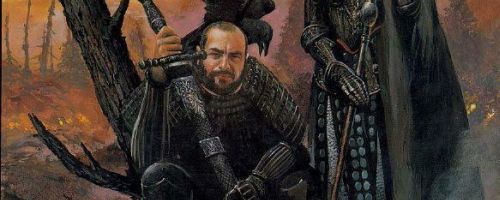
They are but mortal men, not great heroes of destiny! This serves the book well by giving readers sympathetic characters to latch onto.

Once Cook establishes the characters, he also shows how the company struggles to deal with a demon that’s plaguing the city. The characters also have less than heroic names like One-Eye, Goblin, Elmo, and our protagonist, Croaker. They’re all stuck in a contract to an erratic employer who drags them into political squabbles that the company wants nothing to do with. Even the company’s wizards are considered middling at best. Our heroes – and I use the term loosely – are a bunch of mercenaries that mostly lack any special abilities besides professionalism and determination. That way, readers will sympathize with the regular people caught up in a miserable world, something we can all understand.īlack Company does a decent job of this, especially at the beginning. To compensate for this, dark stories need to keep their characters as grounded as possible. The most apparent downside of this trope is that when everyone’s a minusculely different shade of gray, the audience doesn’t have a big conflict they can get invested in. Sometimes none of the various factions involved in a conflict are better than the others, and the world will be a dismal place no matter no matter who wins. This isn’t universal by any means, but it’s common enough to be easily recognizable. Nevertheless, The Black Company still has a few lessons to teach us about dark stories, both in its successes and in its failures.Ī major hallmark of dark stories is the lack of a noble goal that the hero can fight for. The book suffers from a number of technical mistakes such as forgetting to foreshadow big twists and summarizing major plot points. * While this was hardly the first dark fantasy novel, it did a lot to popularize the subgenre.

In my quest to better understand dark stories, I picked up Glen Cook’s The Black Company, the first book in a series of the same name.

Audiences simply expect more from stories that feature distressing subject matter, especially when the real world is distressing all on its own. However, dark stories do present special challenges, and the darker you go, the more stringent those challenges are. A darker tale is often more gripping than a lighter one, and some stories won’t work at all without a little darkness. Oversaturation aside, there isn’t anything inherently bad about them. Since that’s apparently the state of things, we might as well try to get dark stories right. You might be tired of dark stories, I might be tired of dark stories, but, nonetheless, the dark stories just keep coming.


 0 kommentar(er)
0 kommentar(er)
